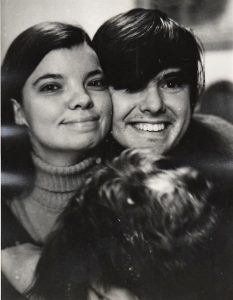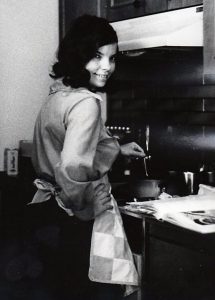(Previously in the novel: Private Adam Christy guides President and Mrs. Lincoln down the backstairs to the basement where they will spend the rest of the war. Secretary of War Edwin Stanton claims he can end the war faster that way.)
Large, rusty iron traps clanged against each other in Gabby Zook’s big rough hands as he lumbered down the hall of the Executive Mansion basement, muttering to himself.
“Got to find the rats; can’t have rats in the White House. Not around the president and his lady. No, that wouldn’t be proper. No, it wouldn’t be right to have rats in the White House, not when there’s a war going on; not when no war’s going on, either. Rats in the White House aren’t proper any time.”
Sticking his gray-haired head in the door of the main kitchen, Gabby asked, “Seen any rats in here, Miss Phebe?”
“No, sir, Mr. Gabby.” A tall, dark brown young woman looked up from the massive cast-iron stove set into the left wall.” She flashed a toothy, friendly grin. “We keep those critters chased out of here.”
“Yeah, we chop them up and feed them to the white folks upstairs,” said a short, slender, caramel-colored man in his thirties as he walked up with a basket of carrots, tomatoes, and onions.
“The president eats rats?” Gabby’s eyes widened.
“Oh, Neal, don’t tease Mr. Gabby.” Phebe lightly slapped the shoulder of her companion in the kitchen and laughed.
“What does rat taste like?” Gabby said, his eyes squinted in curiosity.
“Chicken.” Neal smiled broadly.
“Mr. Gabby, Neal is pulling your leg.” Phebe shook her head in amusement. “Now, you pay him no mind. No white folks eat rat in the White House, or any other house.” She glanced at Neal. “Tell him straight that folks don’t eat rat.”
“That’s right, Mr. Gabby,” Neal said. “Nobody eats rats, unless they’re real hungry and don’t have nothing else to eat.”
“And there’s plenty of good stuff to eat in the White House.” Gabby nodded.
“Plenty of good stuff here, Mr. Gabby,” Neal said, putting the basket filled with vegetables on a rough chopping block table next to the stove. He looked at Phebe. “Are they eating here before they return to the Soldiers’ Home tonight?”
“Nope,” she replied, pulling the bunch of carrots from the basket. “So we’re just cooking for the staff. Mr. McManus has a taste for pork chops.”
Neal is in love, Gabby told himself as he watched the black man look at Phebe. Yep, he had seen people fall in love many times in the close to fifty years he had been on this earth, and it was easy to tell when a man was smitten. Gabby prided himself on observing people’s eyes, which told him much, and he recognized the extra attention Neal paid to Phebe’s form, her hair, the way her slender hands moved quickly and efficiently to peel and dice the carrots. He knew the young man was trying to hide his infatuation, but the eyes never lie, especially when there was a smart brain behind them. Yes, young Neal was smart. Gabby could always tell a smart person because he himself was smart. Not too many people knew that, but deep in his heart, Gabby knew he was smart.
“Aw, don’t I have time for a nice cup of hot, black coffee before I go get the white folks’ chops?” Neal sat on the edge of the chopping block table.
“You keep talking like that, and Mrs. Lincoln’s likely to chop your head off.”
“Well, I wouldn’t want the queen to order a beheading.” Neal stood.
“Mrs. Lincoln is a queen?” Gabby’s face scrunched up in befuddlement.
“She thinks she is,” Neal said with a snigger.
“How can she be a queen if Mr. Lincoln is president?” Gabby tried to sort this out. “For Mrs. Lincoln to be a queen, Mr. Lincoln would have to be a king, and he’s not a king because he was elected, and kings aren’t elected, they’re just born that way.”
“That’s right, Mr. Gabby,” Neal agreed, “just like you’re just born the way you are.”
“Neal,” Phebe said, shaking her head in mild rebuke.
“But you called her a queen…”
“Neal was joking.” Phebe stopped chopping and turned to Gabby. “Mrs. Lincoln is not a queen. Nobody thinks she’s a queen. And Mrs. Lincoln would be hopping mad if anybody was fool enough to call her a queen to her face.”
“Oh,” Gabby said, subdued because he felt he may have made her mad at him. He liked Phebe very much and would not do anything to keep her from being his friend.
“Neal likes to joke. He’s a big joker. If he says something that doesn’t sound right, like folks eating rats or Mrs. Lincoln being a queen, you have to tell yourself, why, that joker Neal is telling another one of his tales, and you just laugh at it.”
“Yes, ma’am, Miss Phebe,” Gabby said. “I’m sorry.”
“You didn’t do anything to be sorry for,” Neal offered.
“And, land of Goshen, don’t call me ma’am,” Phebe said, a bit irritated. “I’m just a n****r who works in the kitchen.”
“You’re not on a plantation anymore.” Neal wrinkled his brow. “You don’t have to call yourself that name anymore.”
“That’s what I am.” Phebe resumed her chopping, concentrating her gaze on the rough wood table.
“Mr. Gabby,” Neal said with a smile. “You and me got to teach this young lady a lesson about herself, don’t you think?”
“This isn’t a joke, is it?” Gabby eyed him carefully. “You really want me to help?”
“No joke. I want your help.”
“Well, I’ve done a lot of thinking about this all my life.” Gabby cleared his throat and stepped forward hesitantly. “I think it’s all kind of silly.”
“What’s kind of silly, Mr. Gabby?” Phebe looked up and forced a smile.
“That name. N****r.” Gabby spoke the dreaded epithet with so much innocence that the two young African-Americans standing before him relaxed, their eyes widening slightly, willing to take in what the man with the rat traps was about to say.
“It’s a lazy way of saying Negro, which means black. I don’t know why people have to be lazy in the way they say words, but they are, and there’s nothing we can do about it, but it still doesn’t make it right.”
“No, it doesn’t,” Neal interjected.
“Even if they did say it right, it still wouldn’t be right. No, it still wouldn’t be right; do you want to know why it wouldn’t be right? Well, I’ll tell you why it still wouldn’t be right. It still wouldn’t be right because you’re not black.”
“Not black,” Neal blankly repeated.
“Black is absence of all color, of all light. And you have color in your skin, so you can’t be black.” Gabby extended his hand to touch Neal’s face. “Now you, Neal, you’re more of—of coffee with a whole caboodle of milk in it.” He squinted as he lightly poked the freckles on the young man’s cheeks. “With little speckles of nutmeg floating on top. Although I don’t know why there’d be speckles of nutmeg in coffee. You put nutmeg on eggnog, and you’re definitely not eggnog.”
“Yeah, I’d rather be coffee than eggnog any day of the week.”
Gabby turned his attention to Phebe, who took a small step back, but that did not stop him from laying his full palm against her tender, smooth cheek.
“And you’re deep, rich coffee without a drop of anything else in it. No milk, no nutmeg, nothing but pure, dark coffee.” He slowly pulled his hand away, his eyes filled with child-like curiosity. “Your family doesn’t have any white people in it, does it?”
“What?” Phebe shook her head.
“Oh, Mama told me and Cordie all about slavery. Cordie’s my sister. Mama told us how bad slavery is.”
“So you think you know all about it?” Cynicism licked the edges of Neal’s question.
“Oh no.” Gabby vigorously wagged his head. “I don’t know everything about anything. Nobody knows everything about anything. The smart man is the man who knows he doesn’t know everything. Socrates said that. Or was it Plato?”
“So what do you know about slavery?” Neal crossed his arms over his chest.
“Mama said plantation white people would make babies with slaves anytime they wanted, because they were the white people, and they thought they could make the black slaves do anything they want.” Gabby looked at Phebe again. “It looks like no white people came into your family’s cabin.” He then studied Neal. “You got a whole bunch of white people in you.”
“Now, there’s no need to be nasty.” Neal laughed.
“You’re joking now, aren’t you?” Gabby asked.
“Yeah, I’m joking.”
“Mr. Gabby,” Phebe said as she cleared her throat. “I think I saw some rats this morning across the hall in the furnace room.”
“And there’s rat shit in the billiards room,” Neal added.
“That’s very funny.” Gabby laughed.
“What’s funny about rat shit?” Neal asked.
“What a joker you are.” Gabby laughed again.
“Mr. Gabby, Neal isn’t joking this time. There really are rat droppings in the billiards room. That means there are rats in there.”
“Oh.” Gabby stopped laughing, turned abruptly, and left the kitchen, going directly to the furnace room.

